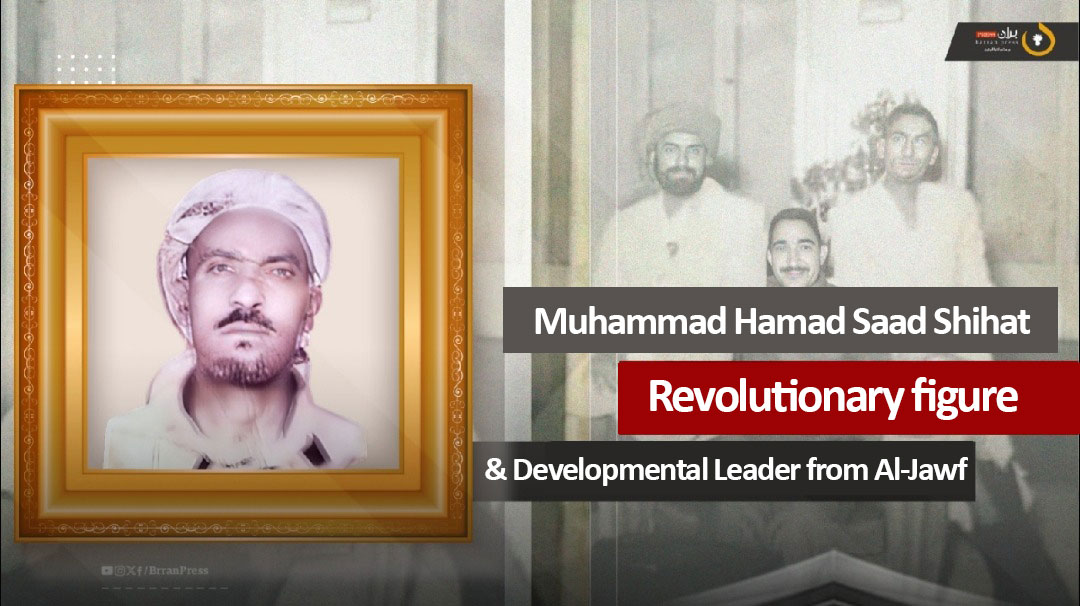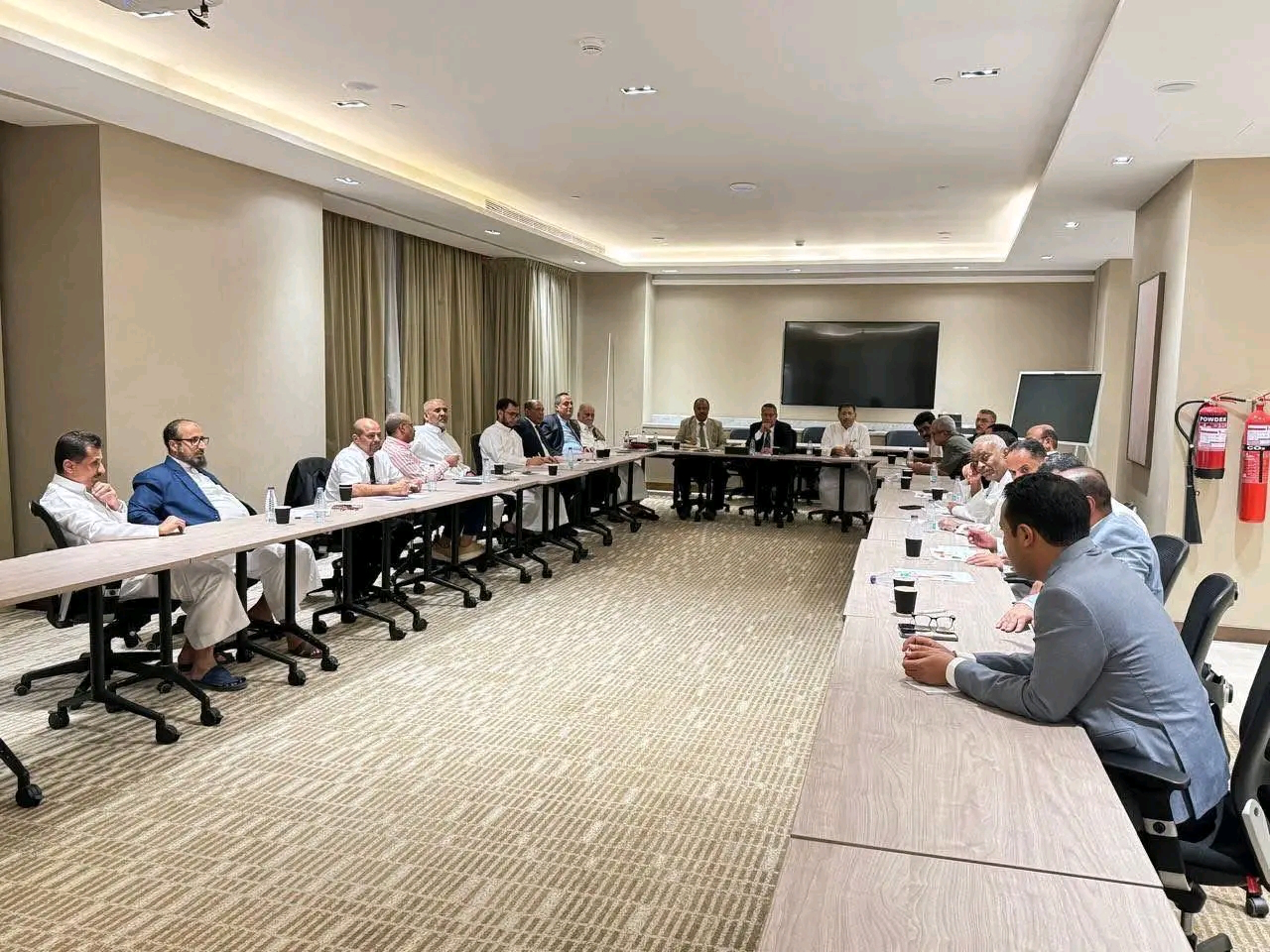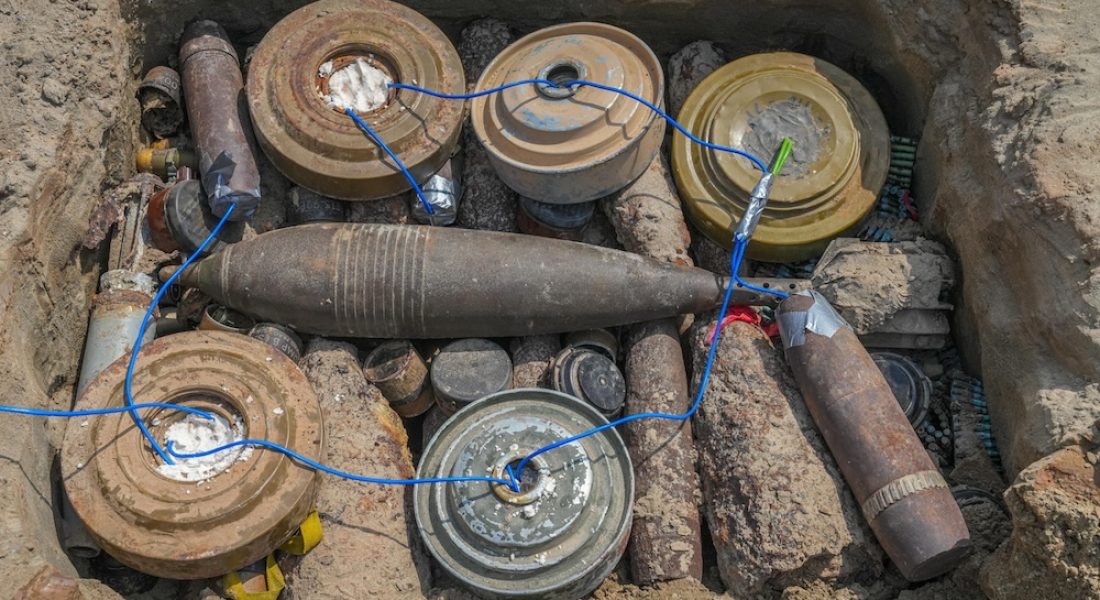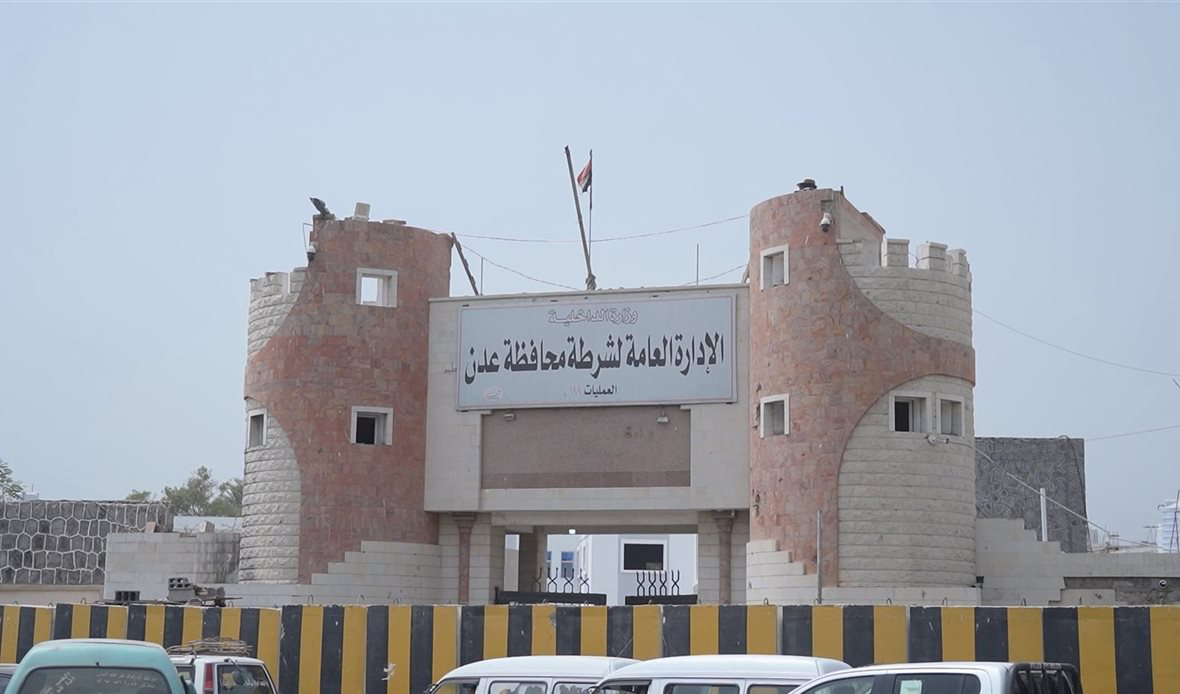
Barran Press
Sheikh Muhammad Hamad Saad Shihat stands as one of the prominent figures of the September 26 Revolution against Imamate rule in Yemen, and he is recognized as a pioneer of development in Al-Jawf Governorate in northern Yemen.
This profile highlights the biography of Shihat, his key contributions during the September 26 Revolution, and his impactful community and developmental initiatives in the province.
Early Life and Education
Born in 1932 in the Al-Hazm district, the capital of Al-Jawf Governorate, Shihat grew up in a tribal family, belonging to the Hamdan tribe. His father was a prominent tribal chief in Al-Hazm.
Shihat began his elementary education under the guidance of a local religious scholar in Al-Hazm, where education was primarily conducted in mosques. As a young man, he yearned for change, driven by the injustice and oppression he witnessed under Imamate rule, which manifested in the imprisonment and persecution of community leaders and widespread ignorance in the province.
A Revolutionary Awakening
In 1961, Shihat was arrested by the Imamate forces and imprisoned in the military prison in Sana'a for allegedly rebelling against their authority. During his imprisonment, he connected with various revolutionary figures, including Abdullah Naji Daris and Abdul Salam Sabra, strategizing for the revolution against Imam al-Badr Ahmad Yahya Hamid al-Din.
He spent a year and a half in military confinement, being released along with other political prisoners just weeks before the revolution.
Role in the Revolution
While in prison, Shihat and his comrades developed clear revolutionary roles and were among the key figures who ignited the September 26 Revolution, aiming to dismantle the rule of the Imamate, characterized by hunger, ignorance, and disease. They established a republican system founded on principles of justice, democracy, and equal citizenship.
Following the revolution, Shihat joined the state’s regular army, where he met leaders such as President Abdullah Al-Sallal and General Abdullah Juzailan, the Deputy Chairman of the Revolutionary Command Council. By 1967, he achieved the rank of lieutenant in an infantry unit, serving as a military secretariat.
Defending the Republic
As remnants of the Imamate launched attacks on the republican government, Shihat mobilized the tribes of Al-Jawf to confront these challenges, participating in fierce battles in the "Aqba Abu Dahr" area of Khabb al-Shaf district, northeast of Al-Jawf. He was among the officers who defended the capital, Sana'a, during its 70-day siege by Imamate forces, ultimately leading to a republican victory.
Political Roles and National Missions
Shihat maintained extensive internal relations with tribal leaders and state officials, fostering close communications with influential figures such as Sheikh Abdullah bin Hussein Al-Ahmar. He also developed strong ties with the Egyptian military, which came to support the republican cause in Yemen.
He participated in a political mission to Egypt with a large delegation of Yemeni revolutionaries, lasting three months, aimed at learning about Egypt’s development and progress. The program included visits to educational institutions, historical sites, and factories.
Shihat played a crucial role in establishing state presence in Al-Jawf, accompanying various officials during their visits to the province, where state authority was minimal.
Developmental and Social Contributions
After Ali Abdullah Saleh assumed power in 1978, Shihat visited him in Sana’a with other tribal leaders, requesting the establishment of committees to survey groundwater and assess the province's educational needs.
In 1979, he welcomed Derham Naaman, the first effective governor of Al-Jawf, and assisted in providing land for state facilities, facilitating the arrival of a Chinese company to build government infrastructures in the province.
That same year, Shihat addressed Prime Minister Abdulaziz Abdulghani during his visit to Al-Jawf, delivering a poignant message summarizing the needs of the people: "Sick, heal me; thirsty, give me water; ignorant, teach me."
He supported various developmental projects, hosting German companies that drilled wells near his home and contributing to the establishment of Al-Jawf General Hospital and several schools in the region. Socially, he played a mediating role in resolving tribal disputes and civil conflicts, earning acceptance among the local populace.
In 1980, Sheikh Muhammad Shihat passed away after a lifetime of dedication to his land and people. He significantly contributed to state-building in Al-Jawf, establishing infrastructure and public services that endure to this day. His national legacy and revolutionary roles helped cultivate a republican generation that rejects Imamate and theocracy throughout Yemen.





